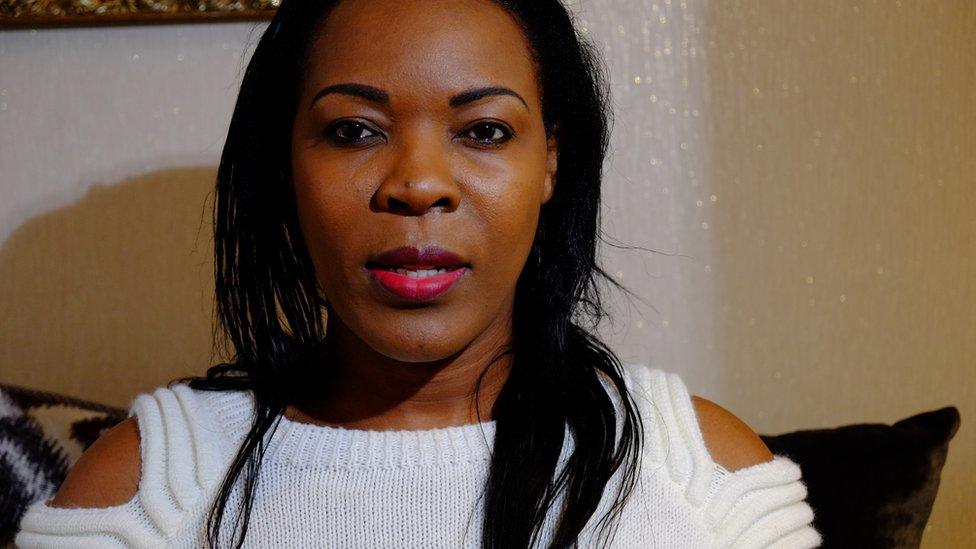Changing Places: England to get about 500 new accessible toilets
- Published
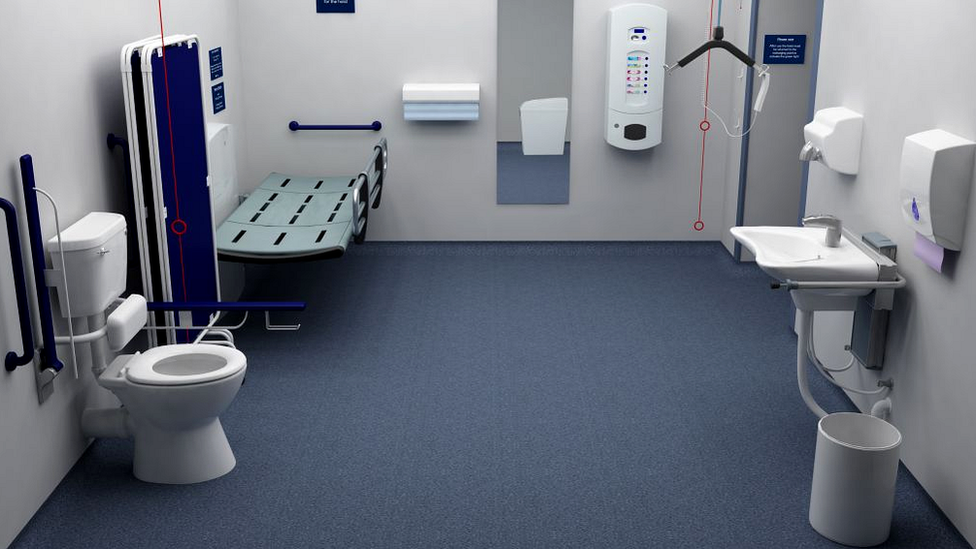
Changing Places have equipment such as a height-adjustable changing bench and a hoist
About 500 new large accessible toilets for severely disabled people are to be installed across England after the government awarded £23.5m of funding.
Changing Places Toilets (CPTs) have been mandatory in new buildings since 2020 and a year later, funding was offered to add them to existing sites.
The Department for Levelling Up, Housing and Communities (DLUHC) said 191 councils had made successful bids.
Campaigner Zack Kerr said the new CPTs would "make such a difference".
The 26-year-old, from Oswaldtwistle in Lancashire, was one of a number of people who had campaigned for the number of CPTs to increase across the country.
About 250,000 people need to use the facilities, which include hoists, changing benches and space for carers.
Mr Kerr said they were "quite simply life-changing", as without them, he faced the choice of "staying at home or restricting my social life because of my needs".
"No-one should have to face these decisions because of the lack of basic toilet facilities," he said.
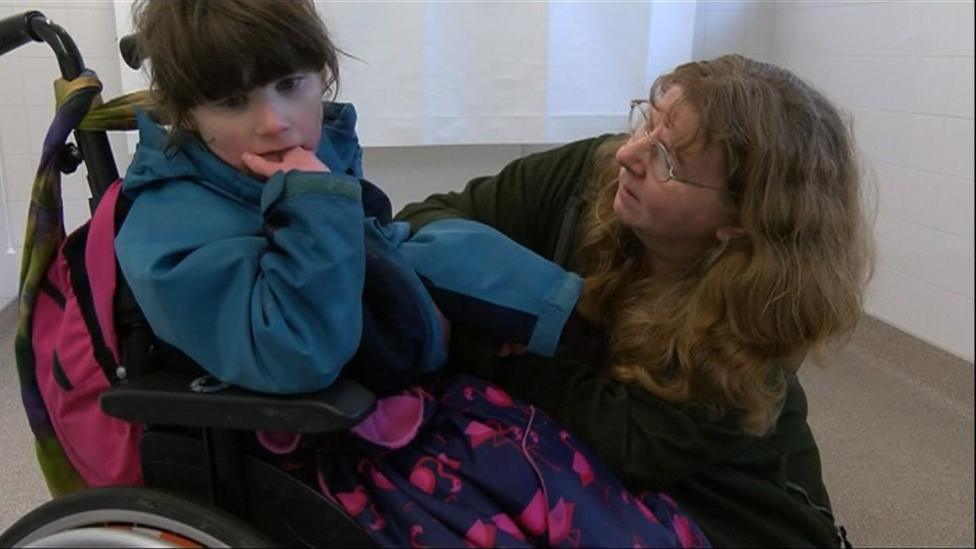
Ms Fillingham's daughter has a rare genetic condition and is classed as clinically extremely vulnerable
Lorna Fillingham, from Ashby in Lincolnshire, had also campaigned for more facilities after struggling to find sites that were suitable for her 12-year-old daughter.
She said CPTs were a "lifeline", as without them, "disabled children are having to be changed on public toilet floors or in the back of cars".
"In the 21st Century, nobody should be isolated in their homes because of a lack of an accessible toilet, and nobody should have to be laid on a public toilet floor," she said.
"So we are thrilled after all our campaigning that the number of these toilets is going to increase."
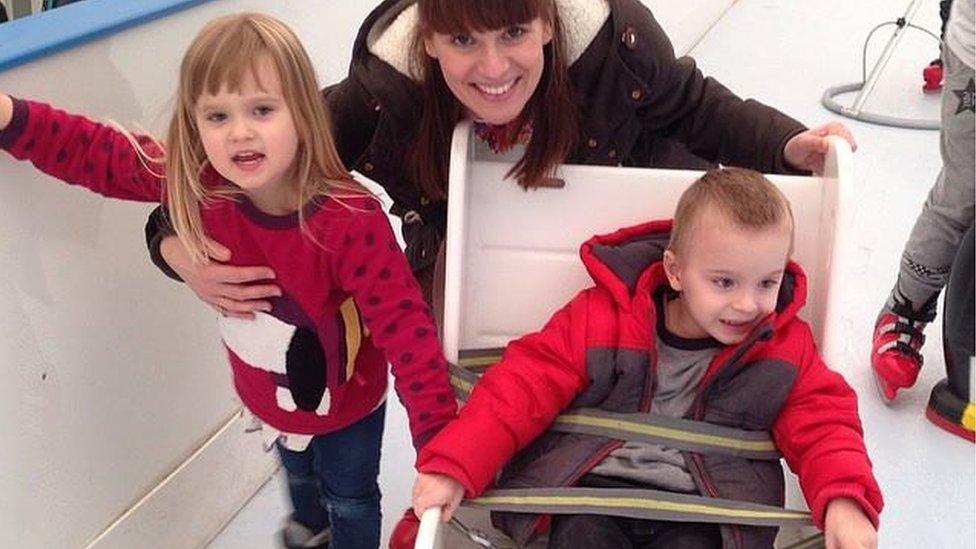
Sarah Brisdion began her campaign after using public toilets with her twins Erica and Hadley, who has cerebral palsy
Sarah Brisdion, from Hampshire, started a campaign after she experienced difficulties using toilets when out with her son, who has cerebral palsy.
She said it was "really important" that the 191 councils spend the money "wisely so that families like mine can benefit as soon as possible".
"By that, I mean ensuring facilities are installed correctly," she said.
"A CPT must conform to the technical standard in order to meet the needs of as many disabled people as possible [and] must also meet this best practice standard to be registered on the national Changing Places map.
"This is critical, people can't use them if they don't know where they are."
A Department for Levelling Up, Housing and Communities (DLUHC) spokesman said there were currently about 1,300 facilities across the country, but "demand for provision is outstripping supply and the number of CPTs needs to increase to improve access for severely disabled people and their carers".
He said the facilities would be delivered in partnership with the charity Muscular Dystrophy UK (MDUK).
Campaigners told the BBC in 2019 that it was critical that more CPTs were created
Mr Kerr's stepfather Ceri Davies, who works as Changing Places Support Officer at MDUK, said the new CPTs would be "a game-changer".
"Our lives as a family are literally controlled by the locations of these vital facilities," he said.
"When there is such a lack of fully accessible toilet facilities all around the country, it makes even the simplest shopping trip or theatre visit impossible."
A full list of which councils have been awarded money and how many CPTs they will be installing in their area can be found on the DLUHC website, external.
The department spokesman said a further round of CPTs funding was "anticipated later in 2022".

Why not follow BBC North West on Facebook, external, Twitter, external and Instagram, external? You can also send story ideas to northwest.newsonline@bbc.co.uk, external
- Published4 March 2021

- Published19 July 2020
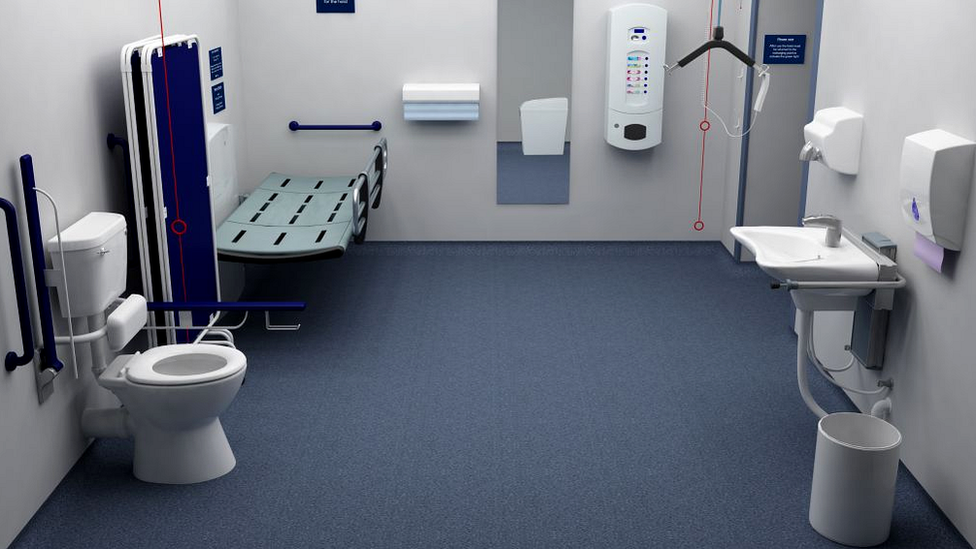
- Published4 July 2019
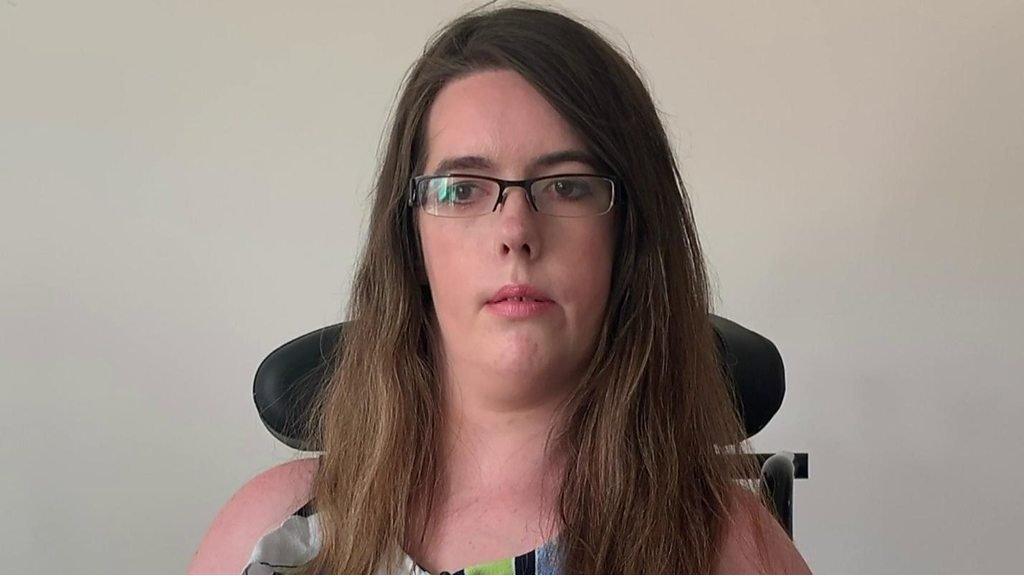
- Published16 January 2018
